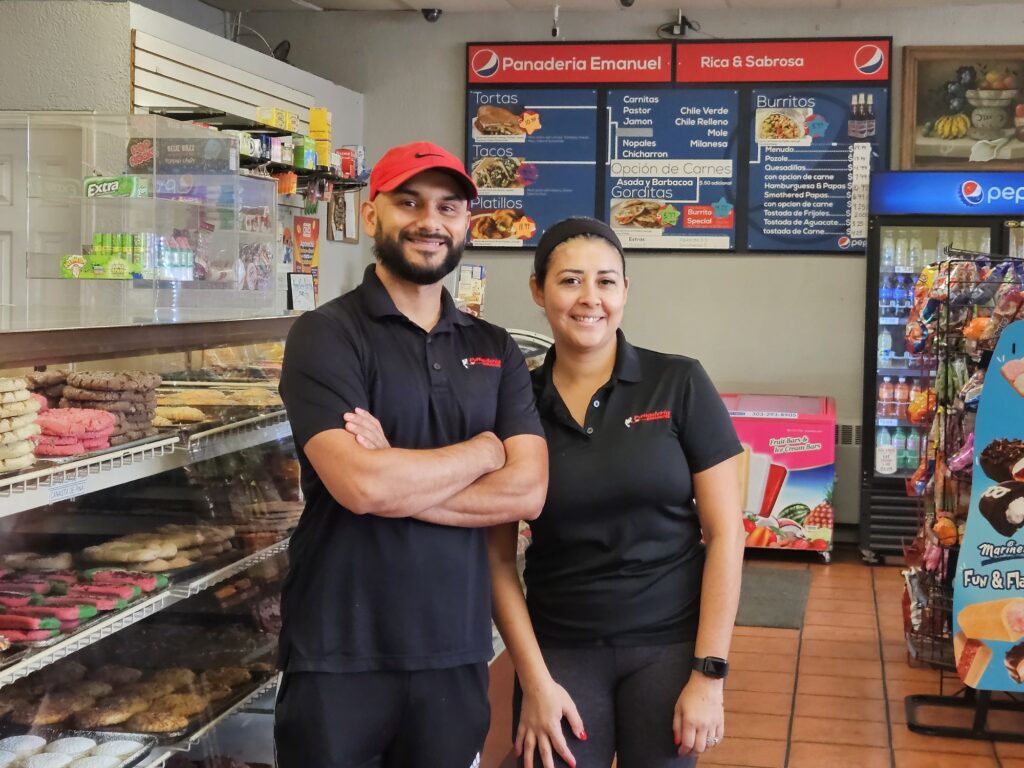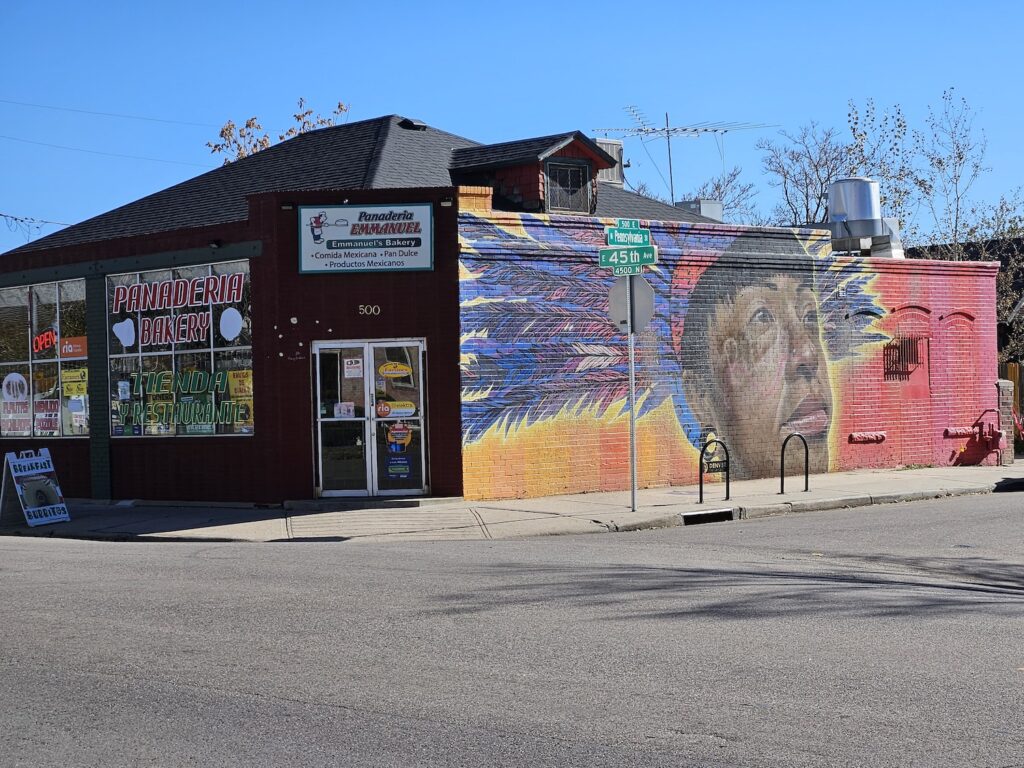By Ernest Gurulé
When the 4:30 a.m. alarm goes off at the Casillas home, much of the city is still asleep. But work at Globeville’s Panadería Emmanuel awaits, and co-owner Daniel Casillas needs to get there to prep for a morning rush, one that regularly has people backed up at the counter or waiting for a space to open up in the eating area. It gets busy.
Casillas and his wife, Julia, have run this food stop/grocery store at 500 E. 45th Ave. since 2018, but the business was a Globeville landmark long before that. The couple simply took over the business from Daniel’s parents, who opened it 20 years earlier a few blocks away on Washington Street.

“My mother-in-law wanted to retire,” said Julia Casillas. While the pair regularly helped out at the panadería, they weren’t looking to take it over. Each had other jobs and wasn’t trying to change careers. But after talking about it, Julia said, it just made sense.
“It was an established restaurant,” she said, “and we didn’t have to put in the long hours to get it off and running.” So, Daniel resigned his job as a school security officer, while she left her job as a schoolteacher. Eight years later, there are no regrets.
“I miss it (teaching),” she said. “But I really do believe we made the right choice for our family.”
The restaurant/panadería, which sits just off of I-70 at the Washington Street exit, lights up the old neighborhood. Once off the highway and a quick right turn on 45th Street, there it sits. You can’t miss it. On gray days, its colorful exterior, which is highlighted with a full-scale mural on its west-facing wall, adds a brilliant splash of color to the neighborhood.

Walking through the front doors, you can tell this is the “go-to” place in the area. Standing in line, waiting to order or pay, are locals, hardhat workers and police officers. Most walk out with a pastry and coffee or breakfast burrito. Others who have the time make themselves comfortable in the airy dining room as they eat their breakfasts. Weekends are even busier, and the menudo, a traditional Mexican soup made with tripe (cow stomach), goes fast.
“It’s our specialty,” said Julia. Well, it’s actually her in-laws’ specialty. They brought it with them from Jalisco, the Mexican town they left back in the 1980s. But Julia Casillas and her husband have been true to the recipe and, judging from a regular Sunday crowd, things have worked out well.
Menudo’s not for everyone. Especially if it’s not prepared carefully.
“It’s the way we clean it,” said Julia. “We triple clean it. And we have a special herb that we put into the pot, and that’s what helps with the smell.”
The approach seems to work. At $14 a bowl, it regularly sells out.
The baked goods, Daniel’s specialty and the craft learned from his father, also go fast. Behind the glass case, there are dozens of trays with conchas, pan dulce, frosted cakes and a variety of cookies. Just scanning the possibilities can be fattening, said Julia.
“I’m more a salty, savory person,” she said. “I do enjoy them, but I would rather have a bag of chips.”
The complexion of the neighborhood is changing, as attested by a young White couple making a Sunday morning bakery order. While Globeville remains a mostly deep-rooted Latino community, lower rents and housing availability are getting attention.
Speculators, said Julia, are eyeing the business and the neighborhood.
“There have been offers. My mother-in-law gets them,” Julia said. “But it’s not for sale … we’re committed to the store.”
They’re also committed to the community.
Customers have put their trust in the Casillas family to the extent that they sometimes get calls asking them to make a welfare check on a friend or family member they haven’t heard from in a while. They make the check. Also, said Julia, “there’s a lot of old people who’ve lived here forever. You worry about them.”
The restaurant is like the community’s connective tissue. Also, for some customers, a helping hand.
Julia tells the story of a caregiver who would get her client’s groceries. “Just some eggs, cheese, tortillas,” she said. But they were running short on cash. Julia understood. A few weeks later, she said, the caregiver would come in with a blank check. “I would write the check out for her,” and close the books. It’s that kind of place.
Covid was tough for the pair. Supply chain problems and economic bumps led the Casillases to reluctantly raise prices. Customers understood, Julia said. But the virus also changed their business model.
“We cut our hours,” she said. It’s still a seven-day operation. But time with their children became a lot more important. Daniel works every day; Julia has cut back, but stays busy with their 10-year-old twins. Their daughter is in ballet, their son is in soccer.
The Casillases said their business, their children and extended family give them balance.
“We’re OK like this,” Julia said. “We’re still paying our bills and employees.”
And cutting back a little has been a boon for their family. Panadería Emmanuel, she said, isn’t going anywhere.

Be the first to comment